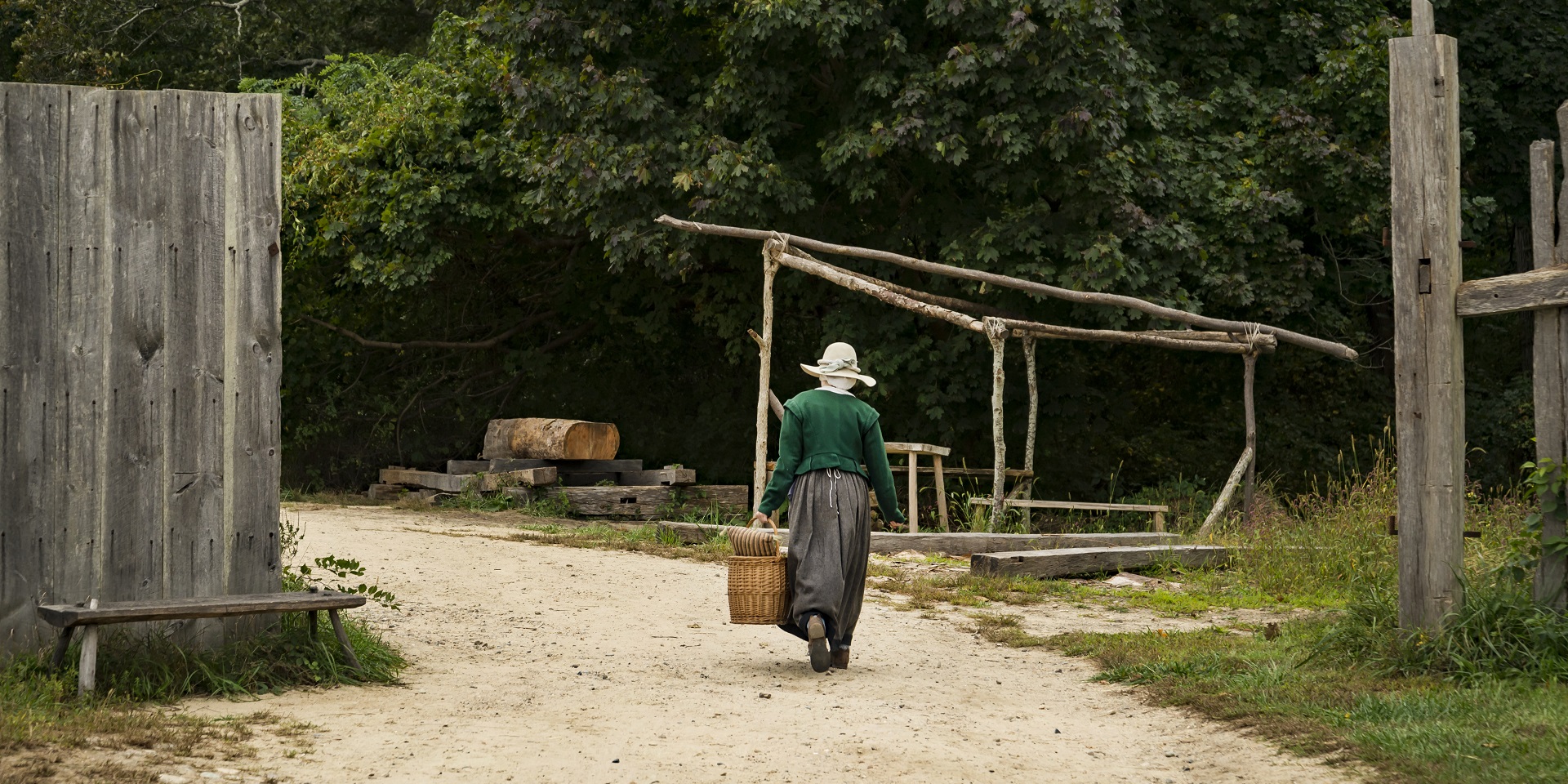Less than 50 years after the supporters of Martin Luther’s ideas in Germany were mockingly called “Lutherans,” England was in its turn discovering a derogative nickname—“Puritans”—which it applied to a category of Christians who disturbed the ordinary life of the English church and society.[1]
The word of God is alive and active. Sharper than any double-edged sword (Hebrews 4:12).
By labelling them “Puritans,” the bishops discredited clerics who did not conform to the rules of the Church of England, which the latter considered only half-Reformed. Those who raised moral objections to theatre plays were marginalised by the same pejorative label by playwrights and theatre lovers. Even among the most common Englishmen, there was dissatisfaction when these insistent Christians focused their criticism on the customs and popular holidays.
Hot faith
The Puritans were at first nothing more than a category of worshipers of the Church of England, earnestly concerned with the Word of God, eager for reform and genuine practical spirituality. Despite the discomfort they created, the discipline, morality, and cohesion of Puritan groups benefited English society. That is why the feelings of the English towards their Puritan co-religionists were divided.
Puritans were a category of Christians concerned with spiritual life—on the one hand, highly valued for their honesty and seriousness, but on the other hand, in some cases, disavowed as legalistic or exaggerated. Puritans were, at least in the beginning, members of the Church of England, not members of separate churches.
Puritan influence in England increased towards the end of the 16th century. People were encouraged to develop a steady life of prayer, study, and fasting, and to seek salvation through Jesus Christ. Basically, the Puritans did not create a different church, but a zealous current of English Protestantism. They were the spearhead of Christianity seeking the visible change of life, which they wanted governed by morality and simplicity.
Regarding the last aspect, it is worth mentioning that the Puritans are pioneers of the concept of a simple, utilitarian church—a meeting place—painted in white and decorated exclusively with biblical verses, a place that does not need a sanctification ritual.[2] This image of the church remained emblematic for the period of the birth of American democracy.
The way Puritans saw their relationship with God is illustrated by the very popular and frequently-translated book The Pilgrim’s Progress,[3] written by the Puritan John Bunyan.
Thirst for reform
The Puritans embraced the principles set forth by Martin Luther and Jean Calvin. They strongly believed in righteousness by faith, and were, like Martin Luther, severely critical of the papacy, which they associated with the Antichrist. On the Calvinist side, however, the English Puritans had become more radical than the Lutherans in reforming ideas, believing that God’s law could and should govern the city, following the model of Calvin’s Geneva.
An important component of the Puritan ethos was the belief that salvation is the result of divine predestination, and as such, whoever had already been chosen by God confirmed that choice through their life. However, there were also radical groups among the Puritans who rejected the legalism, predestination, and baptism of children.
Gradually, however, the Puritan current began to lead to the formation of separatist groups. English Baptists were born out of this process. Another famous separatist group formed the nucleus of the pilgrim fathers—those who, after fleeing to the Netherlands due to the persecution led by Queen Mary I, embarked in 1620 on the ship Mayflower to reach the new continent. This epic of Puritan historiography became the history of the founding of the first British colony in New England—the Plymouth Colony.[4]
In England, after the revolution of the 1640s, led by Puritan leaders under Oliver Cromwell, the fragmentation of Puritanism intensified. Most Puritans were divided into Presbyterian and Congregationalist assemblies. Others formed more radical groups, of which the Quakers became better known. When the era of Puritan rulers came to an end in England, the members of the Puritan congregation were expelled from the Church of England, despite their reluctance to leave. Thus, new Protestant churches were born.
Deep and lasting marks
Puritanism was certainly one of the most influential Protestant mindsets. From England, it spread to Ireland and Wales, influenced the Reformed communities of Scotland, the Netherlands, Hungary, and Transylvania, and established itself, with the greatest impact, in seventeenth-century America.
Puritanism influenced both American political thought and social life. Even the persistent theme of American exceptionalism was born of the Puritan belief that the new colonies were like a fortress on a hill,[5] on which all eyes were fixed, and therefore must offer a model of cohesive and moral society.
In the same spirit of exemplary life, Christmas was rejected by the Puritans and as a result was not celebrated in the United States until 1870. Strict observance of the Sabbath (which for the Puritans was Sunday) led to the formulation of so-called blue laws,[6] which banned regular work, sales, shopping, travel, public entertainment, and sports on Sundays. The American region of New England, which includes the states of Maine, New Hampshire, Vermont, Massachusetts, Rhode Island, and Connecticut, became the centre of influence of American Puritanism.
The Baptist Church of America (Rhode Island) has its origins in this fertile cone of Puritan religiosity, and it is from here that the most important pioneers of the Adventist Church came (Ellen G. White, James S. White, and John N. Andrews were born in Maine; Joseph Bates was born in Massachusetts, and Uriah Smith was born in New Hampshire[7]).
Historians agree that the ebb of Puritanism took place before 1730,[8] but the impact of Puritanism has remained strong to this day. The Protestant Ethic and the Spirit of Capitalism, by Max Weber, argues that the disciplined, almost ascetic spirit of the Puritans founded Protestant ethics and gave birth to the capitalist spirit. Puritans are also considered the founders of American culture, and not coincidentally, the world-famous Harvard and Yale universities are located in New England and have their origins in the American Puritan era.
Many important Protestant churches, such as Congregationalism, Presbyterianism, and Baptism, come directly from Puritanism. As far as evangelicals as a whole are concerned, John Coffey goes so far as to say that it is quite difficult to find many significant differences between Puritans and evangelicals today.[9]
Other churches, such as Methodism and Adventism, have enough in common with Puritanism, but also differences, some of which are even born out of reactions of opposition to Puritan thinking. For example, Adventists took the opposite view of blue laws, but also of the Puritan theocratic vision—of a state that could not be conceived by Puritans without God. While American Puritans have often shown intolerance of religious diversity, Adventists are among the most serious promoters of religious freedom.
Towards the end of the 19th century, many American Christians lamented secularisation and dreamed of a return of America to its Puritan values. But even today, media products such as the documentary Puritan: All of Life to the Glory of God show that beyond the popularisation of historical episodes that fuel a critical perspective on Puritanism, scholars agree that there are good reasons to understand why the Puritan heritage still generates appreciation and nostalgia today.
Norel Iacob believes that Puritanism must be explored not only to better understand its huge impact on the centuries following it, but also to better discover its forgotten qualities, beyond the notorious errors.



















